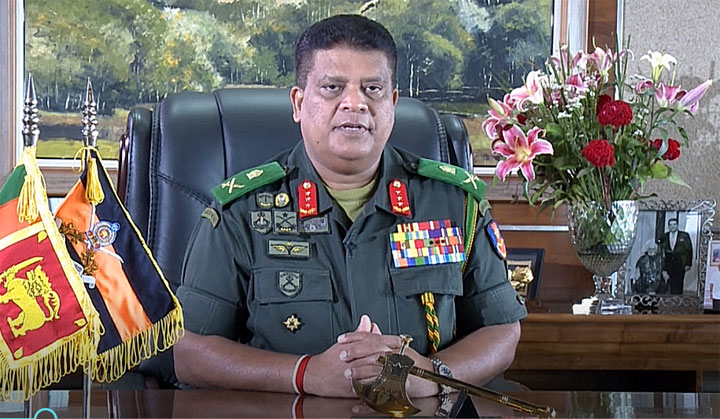The House of Commons has been told that the UK government is exploring the possibility of imposing sanctions on Sri Lanka’s Chief of Defence Staff (CDS) General Shavendra Silva and other members of the military.The UK has reiterated its readiness to use what Foreign and Commonwealth Development Office (FCDO) Minister Jesse Norman called, diplomatic tools including sanctions amidst the ongoing 51 sessions of the Geneva-based United Nations Human Rights Council (UNHRC).
The sessions, which commenced on Sept. 12, will conclude on Oct. 08.The former Financial Secretary to the Treasury has said that the government kept the situation, in Sri Lanka, under close review, including in relation to human rights and accountability. “Within this, the government keeps under active consideration how to use the diplomatic tools we have, including sanctions,” Minister Norman has said.
Lawmaker Norman received the appointment as FCDO Minister, on Sept 07, 2022,following the appointment of Elizabeth Truss as the Prime Minister, on the previous day. At the time Truss received the premiership, she served as the FCDO Minister.
Conservative Party Minister Norman has said so in response to a query raised by Beth Winter representing the Labour Party (Cynon Valley). The lawmaker has asked the FCDO Minister of the recent assessment made of the potential merits of imposing sanctions on (a) the Sri Lankan Chief of Defence Staff, Shavendra Silva, and (b) other members of the Sri Lankan military.
The question has been actually directed at Truss, at the time she served as the FCDO Minister, though the government responded to the query, following her appointed as the Prime Minister.
Minister Norman has said that their Global Human Rights Sanctions regime is a powerful mechanism in the hands of the UK Government meant to hold accountable those who had been involved in serious human rights violations or abuses. The Minister said that their strategy was intended to send a clear signal of the values the UK held.
The Minister said: “The UK Government continues to consider designations globally, guided by evidence and the objectives of the human rights sanctions regime; but it is not appropriate to speculate on potential future designations, in order to avoid reducing their impact.”
British political parties have stepped up attacks on the war-winning Sri Lankan military, especially General Silva in the wake of the US issuing a travel ban, in Feb 2020, on the wartime General Officer Commanding (GoC) of the celebrated Task Force I/58 Division. The US travel ban also covered General Silva’s immediate family.
The Sri Lanka Core Group, led by the UK, recently handed over a new resolution to the UNHRC seeking further action against those whom the group considered human rights violators. The 47-member council, divided into five zones, is expected to vote for the resolution, next week.
Former Minister and leader of Pivithuru Hela Urumaya (PHU) Udaya Gammanpila told The Island that the government should at least now place all available information, pertaining to the conflict, before the Geneva council. Acknowledging that successive governments, including those he served as a Minister, neglected the accountability issues, and thereby allowed interested parties to humiliate the war-winning military, lawmaker Gammanpila said that the move against the CDS was an affront to the country.
The Attorney-at-Law said that the FCDO’s position should be challenged on the basis of wartime dispatches it received from the UK High Commission in Colombo (January –May 2009). Thanks to untiring efforts made by Lord Naseby, the world knew the BHC, Colombo, reported to FCDO that 40,000 Tamil civilians didn’t die as alleged by interested parties, lawmaker Gammanpila said.
The ex-Minister urged the government to review the overall picture and take tangible measures to have politically motivated efforts countered. Sri Lanka brought the war to a successful conclusion in May 2009. PHU leader Gammanpila asserted that perhaps Sri Lanka’s defence in Geneva should be based on wartime US Defence Advisor Lt. Col. Lawrence Smith’s declaration in Colombo, late May 2011, two years after the end of the war, that there was no basis for war crimes allegations against the Sri Lankan military.


